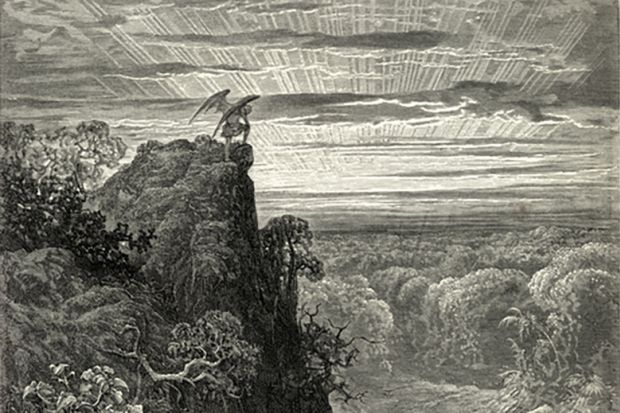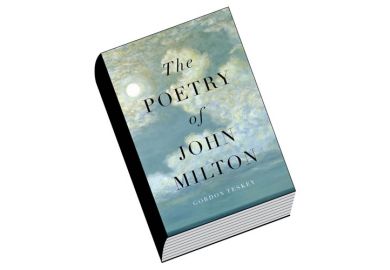John Carey’s The Essential Paradise Lost is a bold enterprise, for surely the essential Paradise Lost consists of all 12 books? To offer a personal selection with summaries, framed by a brief and highly idiosyncratic introduction and afterword, is a risky venture. I feared this might be Paradise Restrained, if not Paradise Misplaced. I was wrong. Appearing 350 years after the first publication of Milton’s epic poem, Carey’s edited highlights confirm him as our finest poet, and Carey as our craftiest critic.
Carey’s lean style leads to glib statements, but these are subsequently enriched by insights gleaned from decades of close reading. For example, he glosses Satan’s stalking of Adam and Eve in Eden, with its colonial allusions to “empire” and “conquering this new world”, as “a terrorist’s logic”. We’ve had Samson as terrorist; Satan seems a step too far. Yet Carey’s claim that Satan is “English Literature’s first terrorist” is backed up beautifully with reference to Milton’s Latin poems on the Gunpowder Plot, where Satan appears as mastermind.
Rehearsing Blake’s suggestion that Milton was of the Devil’s party, Carey declares: “Like Satan, Milton was a rebel…and a bitter foe of absolute monarchy”. This assumes that Milton saw himself as a rebel. He didn’t. It was Charles I who rebelled. Milton’s loathing is captured in his allusion to Satan’s “Monarchal pride”. Carey thinks that Satan hates God, but Satan envies God. Yet having hooked the reader with humanist homilies, Carey homes in on history. With the restoration of the monarchy in 1660, “the British people had turned their backs on freedom and chosen tyranny”. Adam and Eve’s departure from Eden – “not merely stupid but suicidal” – has a whiff of Brexit about it. Perhaps a regained English republic beckons?
Milton’s female muse, Urania, prompts Carey’s question: “Is it in any sense a feminist poem?” Some incidents “lend themselves to feminist interpretation”. Carey reads Eve’s self-regard and desire to tend the garden alone as instances of sympathy and solitude that “bring a new female viewpoint”. Critics versed in Milton’s misogyny will wonder at Carey’s vision of the poet’s “proto-feminist changes to the Biblical account”, but if the Fall paved the way to greater redemption then Eve chose wisely.
Discussing Paradise Lost as the work of a blind poet, Carey engages brilliantly with the senses: “Milton’s sensitivity to sound is so acute that he can use sound to change the way things look…We are reminded of how the blind can use echo-location to orient themselves”. Carey is equally convincing on compensatory senses such as taste and smell. Satan’s sensual sniffing of Eden’s boughs invites us to wake up and smell the apples.
Brilliant on language, less so on politics, Carey has found a way of justifying Milton to a new readership. On style, syntax, names and neologisms, Carey is peerless. Milton famously declared “God every morning raines down new expressions into our hearts”, and dropped a few himself, including “pandemonium”, which still describes the state we’re in. Carey tells us Milton’s “is not a static art, but mobile, and constantly readjusting” – an apt characterisation of Carey’s craft. Fifty years of intense labour lie behind these rich observations, making The Essential Paradise Lost essential reading.
Willy Maley is professor of Renaissance studies, University of Glasgow.
The Essential Paradise Lost
By John Carey
Faber & Faber, 256pp, £16.99
ISBN 9780571328550
Published 16 March 2017
POSTSCRIPT:
Headline: Make a date with the Devil
Register to continue
Why register?
- Registration is free and only takes a moment
- Once registered, you can read 3 articles a month
- Sign up for our newsletter
Subscribe
Or subscribe for unlimited access to:
- Unlimited access to news, views, insights & reviews
- Digital editions
- Digital access to THE’s university and college rankings analysis
Already registered or a current subscriber?





